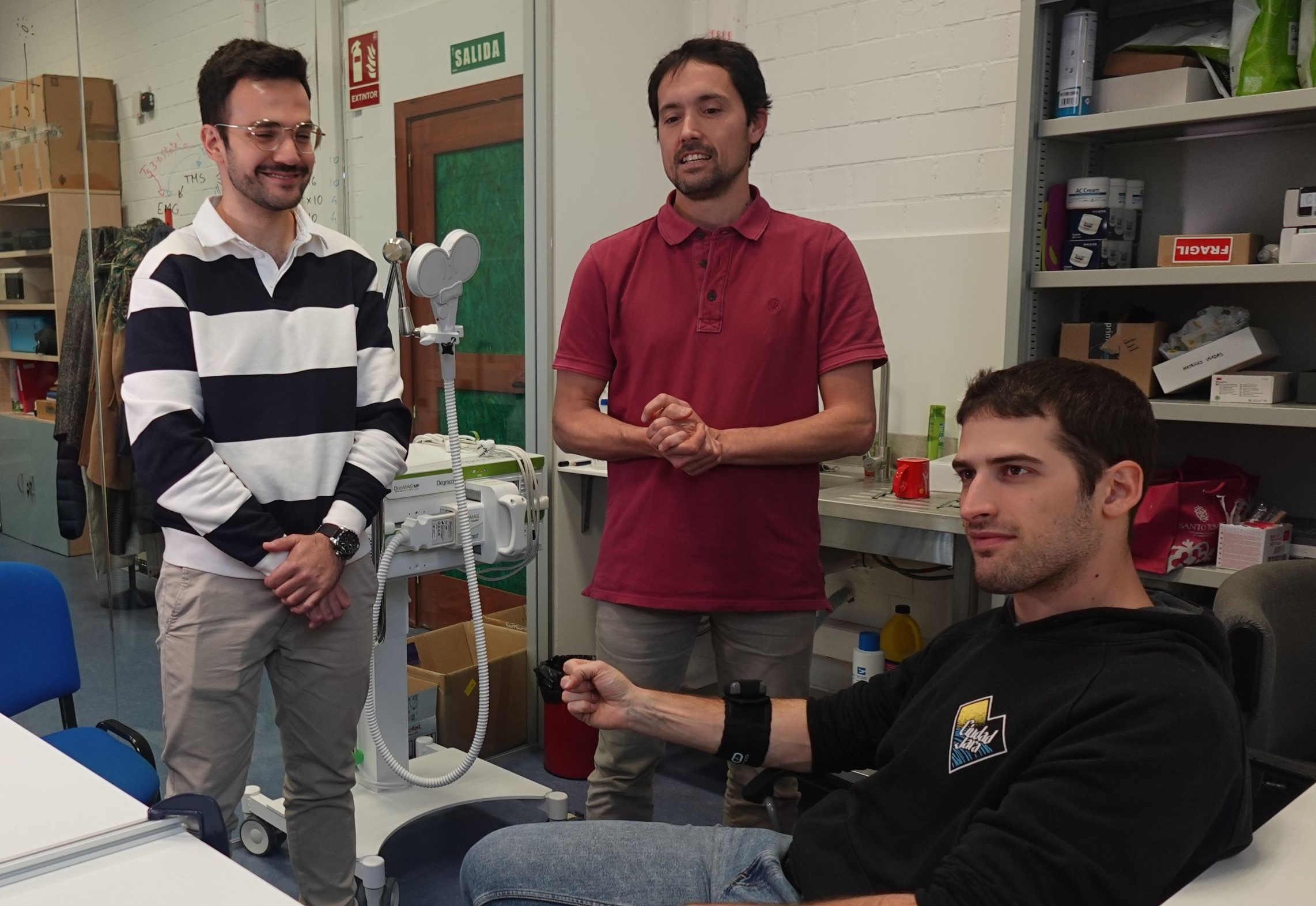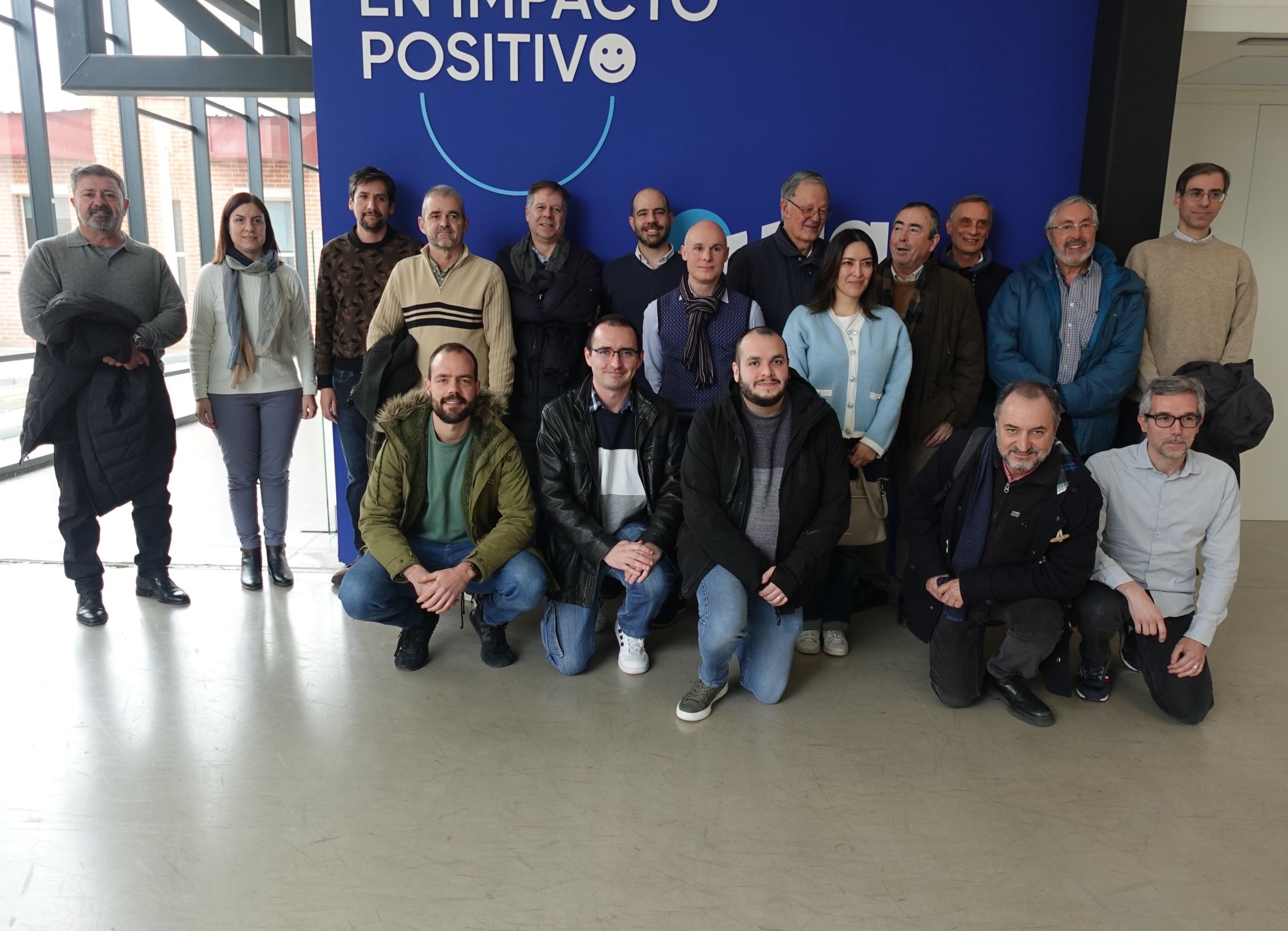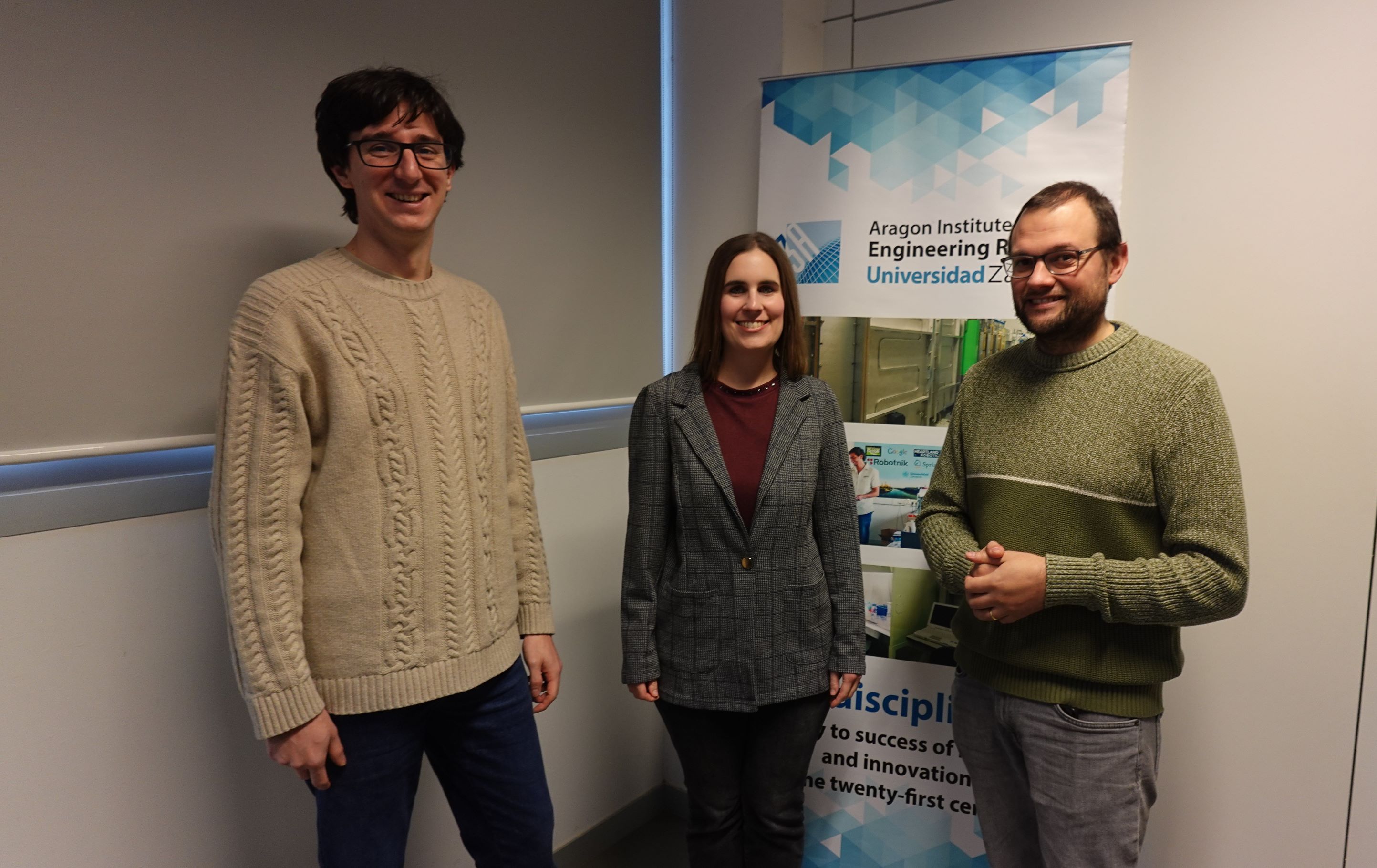
I3A Unizar researchers Denis Navarro (Power Electronics and Microelectronics Group, GEPM) and Manuel Doblaré (Tissue Microenvironment group, TME Lab) are part of the Uro-Oncogu(IA)s project of the Spanish Association of Urology (AEU), where they have developed a tool based on generative artificial intelligence that provides immediate, accurate and reliable answers for clinical practice in urological tumours, based on the European Association of Oncology (EAU) Guidelines.) To do so, they have tested and adjusted the most advanced LLMs (Claude, Gemini and ChatGPT) which has allowed them to obtain the best performance. This is the first time that AI has been integrated into the consultation of specialised clinical guidelines.
This initiative, led and promoted by the AEU, involves seven scientific societies including medical and radiation oncologists, pathologists, radiologists, nuclear medicine specialists, hospital pharmacy specialists and, of course, urologists. Developed by the University of Zaragoza, it has the collaboration of the Instituto de Investigación Sanitaria Aragón.
It has taken 12 months of work, nearly 80 participating professionals and more than 15,000 question-answer pairs evaluated and weighted, which guarantees the exceptional robustness and reliability of these Uro-Oncogu(IA)s. An expert tool at the service of the scientific community, to achieve the most efficient and up-to-date management of uro-oncological pathology in real clinical practice.
The Spanish Urology Association (AEU) presented at its headquarters in Madrid this innovative tool that marks a before and after in the clinical practice of uro-oncology in Spain.
As a result of the collaboration with the GUARD consortium and with the support of scientific societies such as the Spanish Society of Pathological Anatomy (SEAP), the Spanish Society of Hospital Pharmacy (SEFH), the Spanish Society of Nuclear Medicine and Molecular Imaging (SEMNIM), the Spanish Society of Medical Radiology (SERAM) and the Spanish Society of Radiation Oncology (SEOR), the project integrates artificial intelligence (AI) for the first time in the consultation of specialised clinical guidelines.
A chatbot that responds from evidence
Uro-Oncogu(IA)s consists of an intelligent chatbot that provides fast, accurate and evidence-based answers to questions that arise when consulting clinical practice guidelines. This tool has been trained with the European Association of Urology (EAU) Guidelines, an international reference in the treatment of urological cancer.
Uro-Oncogu(AI)s has been developed and validated with more than 15,000 pairs of questions and answers from the clinical, theoretical and any framework of interest in relation to uro-oncology, and confronting different models of generative artificial intelligence, which places the project in the realm of Big Data.
The aim of Uro-Oncogu(IA)s is to improve clinical decision making through an agile, interoperable and scientifically validated tool that saves time and reduces clinical variability in the approach to urological cancer patients.
The director of the Board of Trustees of the Foundation for Research in Urology (FIU) and former president of the AEU, Dr. José Luis Álvarez-Ossorio, said during the presentation that this project "represents a decisive step towards a more accurate, efficient and connected to scientific knowledge in real time urology. Uro-Oncogu(AI)s puts artificial intelligence at the service of professionals, not to replace their judgement, but to reinforce it with solid and accessible evidence. It is, without a doubt, a transformative tool that places Spanish urology at the forefront of 21st century medicine and the digital revolution".
For his part, Dr. Ángel Borque Fernando, Head of Section of the Prostate Unit of the Urology Service of the Miguel Servet University Hospital in Zaragoza, stressed that piloting this project from the AEU "has been a privilege, born with an integrative and multidisciplinary spirit, combining the efforts and knowledge of expert engineers in AI and leaders in the management of urological tumours from different specialties. And all this, with the disinterested purpose of putting an expert tool at the service of the scientific community, to achieve the most efficient and up-to-date management of uro-oncological pathology in real clinical practice".
The president of the AEU, Dr. Carmen González Enguita, in her speech said that from the AEU and with Uro-Oncogu(IA)s ‘we promote a transformation not only technological, but also cultural, which involves becoming familiar with new methodologies, such as AI, as well as evolve in the style of approaching the Uro-Oncological pathology’.
He also highlighted the commitment to a change in the way urologists "relate to knowledge, technology and patients who require active and responsible participation in the process. Uro-Oncou(IA)s represents a firm step towards a Medicine that, at the key moment of shared decision-making, puts the focus on the patient. We will continue to work along these lines, promoting an innovative, rigorous urology that is committed to the future".
Photo: EUA, presentation event in Madrid.



